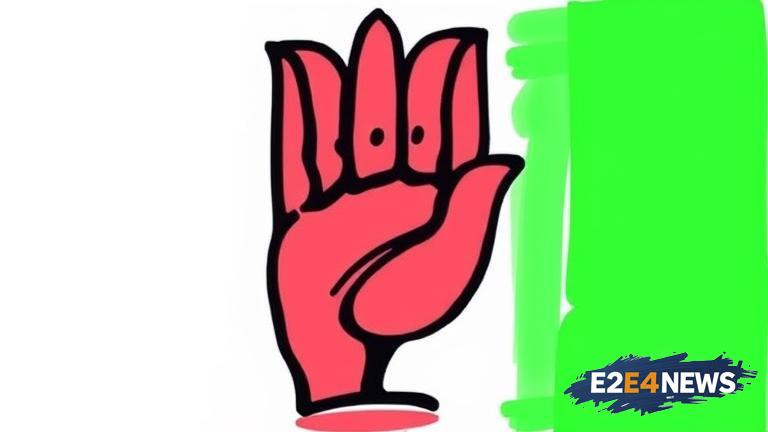The Akhil Bharat Janata Party (ABJ) had approached the Delhi High Court seeking a direction to the Election Commission of India (ECI) to allot a poll symbol to the party for the upcoming Bihar elections. The party had argued that it had fulfilled all the necessary conditions for being recognized as a state party and was therefore entitled to a poll symbol. The ECI, however, had refused to allot a symbol to the party, citing certain technical grounds. The ABJ had challenged this decision in the Delhi High Court, contending that the ECI’s decision was arbitrary and unjustified. The court, after hearing the arguments of both sides, has now directed the ECI to file a response to the ABJ’s plea. The ECI has been given a deadline of two weeks to file its response. The court’s order is seen as a significant development in the case, as it indicates that the court is taking a serious view of the ABJ’s plea. The ABJ had argued that the ECI’s decision to refuse a poll symbol to the party would cause irreparable harm to its electoral prospects. The party had also contended that the ECI’s decision was in violation of the principles of natural justice. The ECI, on the other hand, had argued that the ABJ had not fulfilled all the necessary conditions for being recognized as a state party. The commission had also contended that the ABJ’s plea was not maintainable, as the party had not exhausted all its remedies before approaching the court. The Delhi High Court’s decision to seek a response from the ECI is likely to have significant implications for the upcoming Bihar elections. The elections are scheduled to take place in October-November this year and are seen as a crucial test for the ruling National Democratic Alliance (NDA) government. The ABJ’s plea is one of the several petitions that have been filed in the Delhi High Court regarding the Bihar elections. The court is also hearing a petition filed by the Rashtriya Janata Dal (RJD) challenging the ECI’s decision to allot a poll symbol to the Lok Janshakti Party (LJP). The RJD had argued that the LJP was not entitled to a poll symbol, as it had not fulfilled all the necessary conditions for being recognized as a state party. The Delhi High Court’s decisions in these cases are likely to have significant implications for the outcome of the Bihar elections. The elections are seen as a crucial test for the ruling NDA government, which is facing a tough challenge from the opposition parties. The ABJ’s plea is also seen as a significant development in the context of the ongoing debate over electoral reforms in India. The ECI has been facing criticism over its handling of the electoral process, with several opposition parties alleging that the commission is biased towards the ruling party. The ABJ’s plea is likely to add to the growing debate over electoral reforms in India. The party had argued that the ECI’s decision to refuse a poll symbol to the party was a clear example of the commission’s bias towards the ruling party. The ABJ had also contended that the ECI’s decision was in violation of the principles of free and fair elections. The Delhi High Court’s decision to seek a response from the ECI is likely to be seen as a significant development in the context of the ongoing debate over electoral reforms in India. The court’s order is likely to be welcomed by the opposition parties, which have been alleging that the ECI is biased towards the ruling party. The ABJ’s plea is also seen as a significant development in the context of the ongoing debate over the role of the ECI in ensuring free and fair elections in India. The ECI has been facing criticism over its handling of the electoral process, with several opposition parties alleging that the commission is not doing enough to ensure that the elections are free and fair. The ABJ’s plea is likely to add to the growing debate over the role of the ECI in ensuring free and fair elections in India. The party had argued that the ECI’s decision to refuse a poll symbol to the party was a clear example of the commission’s failure to ensure that the elections are free and fair. The ABJ had also contended that the ECI’s decision was in violation of the principles of democracy and the rule of law. The Delhi High Court’s decision to seek a response from the ECI is likely to be seen as a significant development in the context of the ongoing debate over the role of the ECI in ensuring free and fair elections in India.





